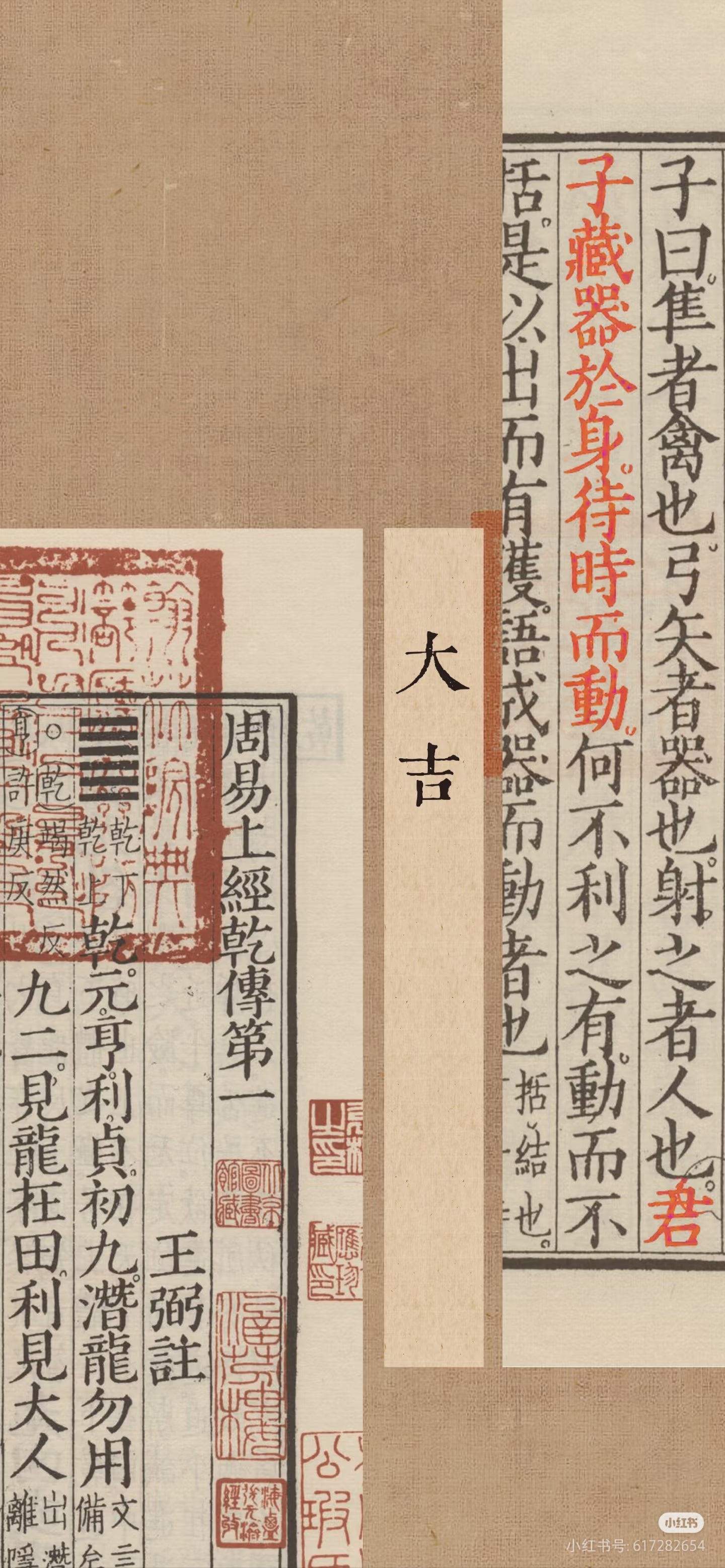Hexagram 52, Line 2
Keeping Still (艮)
六二:艮其腓
The Line Text
六二:艮其腓,不拯其隨,其心不快。
Keeping his calves still. He cannot rescue the one he should follow. His heart is not glad.
The Commentary says: He cannot rescue the one he should follow because he has not yet withdrawn to listen.
Interpretation
This line describes a state of forced and frustrating stillness. The image is of the body wanting to move, directed by the will (the upper trigram), but the calves (line 2) stubbornly refuse to follow. The calves are meant for locomotion, to carry the body forward. By "keeping them still," you are creating a conflict within the self. You are unable to follow a higher calling, a leader, or the natural flow of events because a lower, more obstinate part of you is digging in its heels. This is not the serene, meditative stillness that Hexagram 52 espouses at its best. Instead, it is a state of inner gridlock and discord. The consequence is clear: "His heart is not glad." This feeling of unhappiness and frustration is a sign that your stillness is misplaced. It stems from a failure to align your actions with a greater purpose or authority. The commentary suggests the solution: one has not yet learned to "withdraw and listen"—to let go of the ego's stubborn resistance and heed the proper guidance.
Guidance for Action
You are feeling stuck, and this feeling is a source of significant frustration. Your current inaction is not a wise, strategic pause but rather a form of stubborn resistance. You may be fixated on a minor detail or refusing to follow a clear directive from a superior, a mentor, or the circumstances themselves. This is causing a bottleneck, preventing progress for yourself and possibly for others. The guidance is to recognize that your unhappiness is a signal. Stop the futile resistance. Let go of the need to control this specific part of the situation. Take a step back from your rigid position ("withdraw") and truly listen to the guidance available to you ("listen"). Aligning yourself with the larger movement is the only way to resolve the inner conflict and move forward.
For Love & Relationships
In a relationship, this line points to a frustrating stalemate. One partner (perhaps you) is stubbornly refusing to move forward on an issue, effectively paralyzing the couple. You may be "digging in your heels" about a decision, a plan, or an emotional step. This isn't about taking a thoughtful pause; it's about resistance that creates tension and unhappiness for both of you. You feel you cannot follow your partner's lead or the natural progression of the relationship, and this disconnection brings discontent. The advice is to examine your own stubbornness. Is the point you're holding onto truly more important than the harmony and progress of the relationship? It is time to let go of this rigid stance, listen to your partner's needs and perspective, and find a way to move together again.
For Career & Business
This line indicates a situation at work where you are the source of a delay, and it's causing you distress. You may be resisting a manager's directive, refusing to collaborate with a team, or clinging to an old method when a new one is required. You see your stance as principled, but in reality, it is creating a blockage that frustrates you and hinders the project's progress. You are the "still calves" holding up the "body" of the team or company. Your inability to follow the lead is making you unhappy and ineffective. The counsel is to reassess your position. Is your resistance truly productive, or is it driven by ego or fear of change? The wisest course of action is to subordinate your personal preference for the good of the collective goal. Follow the established direction and restore the flow of progress.
For Financial Matters
In financial matters, this line warns against a costly and frustrating paralysis. You are likely holding onto a position (a stock, a property, a particular strategy) out of sheer stubbornness, even when all signs point to the need for a change. You cannot "rescue" your portfolio because you refuse to follow the market's trend or the advice of an expert. This inaction is not a calm, long-term strategy; it is an anxious, rigid refusal to adapt, and it is causing you mental anguish ("your heart is not glad"). You are stuck. The guidance is to let go of your emotional attachment to this position. The market will not bend to your will. It is time to "withdraw" from your fixed idea and "listen" to objective data and sound advice. Making a move—even if it means accepting a loss—is necessary to break the paralysis and regain your peace of mind.


